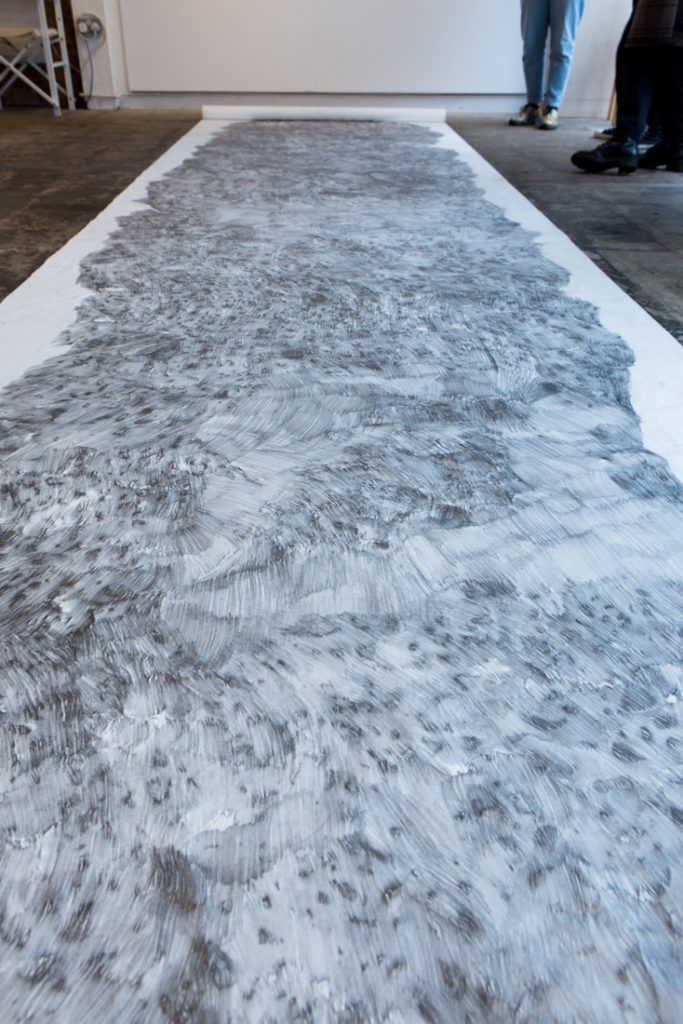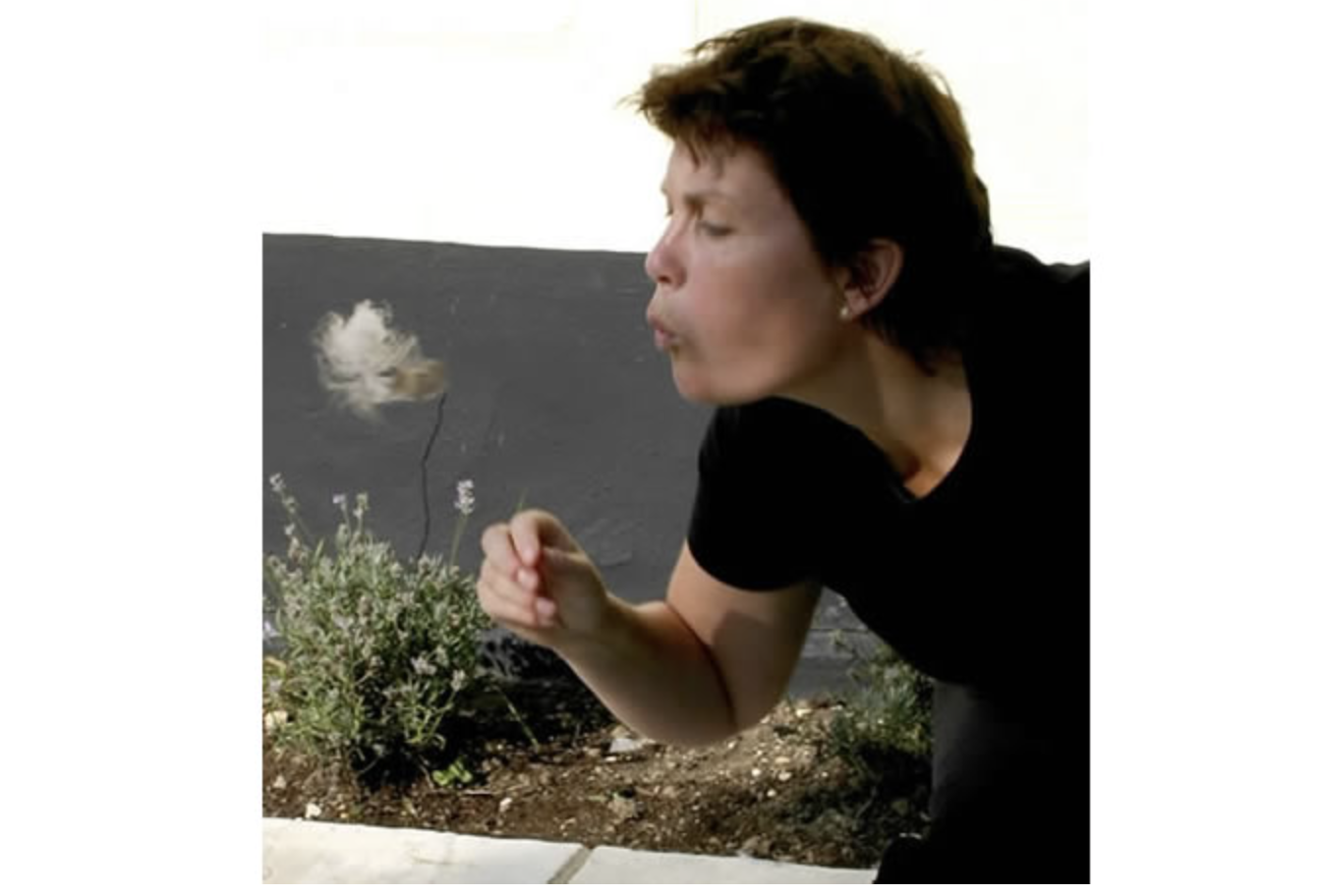Caroline Wright is an Irish multi-disciplinary artist now based in Suffolk, England. Caroline’s practice explores identity and loss in relation to place. She questions how we can hold onto things through making, referencing place attachment (Scannel, Gifford 2010), and the emotional cognitive bonds between an individual and a place.
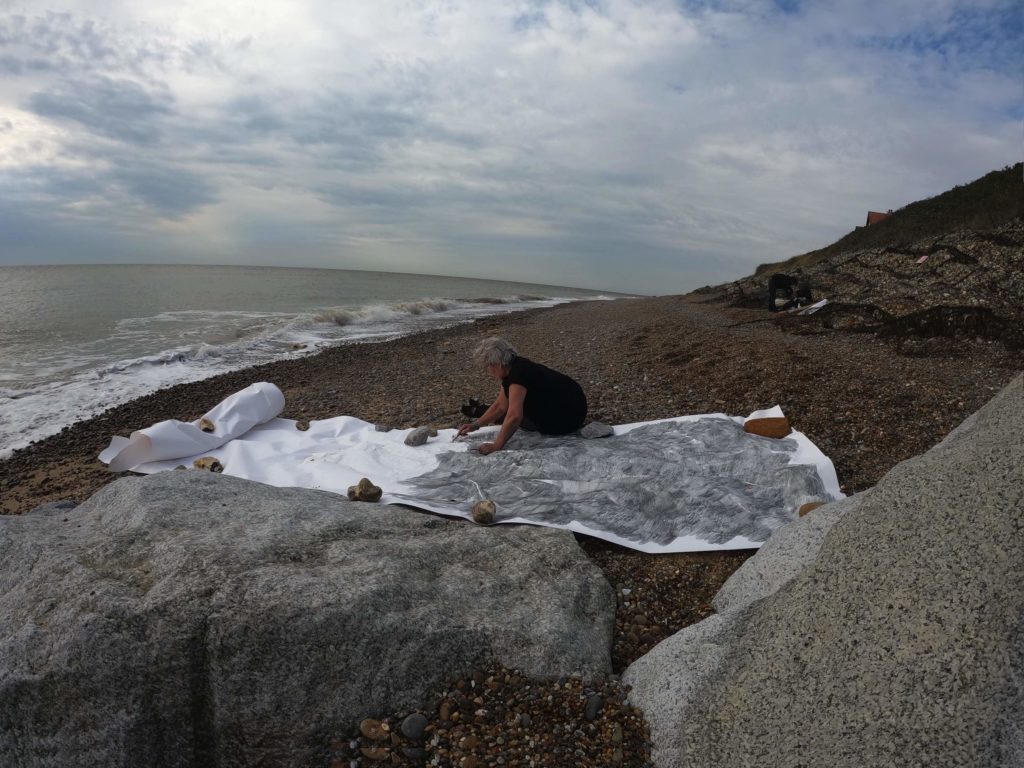
Negotiation between human body and nature
Caroline Wright’s current ongoing research is based on the eroding coastline of her home county of Suffolk. Here, using 6B pencils on paper, she translates her direct experience of fluctuation and movement of matter in and out of water. She has walked and swum here for over 15 years, bearing witness to the destruction of nature by nature. Indeed, Caroline Wright now swims where once she walked. Her on-site drawings take many days to complete, and the process is a constant negotiation and adaption between human body and nature. When drawing, the body’s relationship to shoreline variability mirrors the fragile relationship between the post-human body and the natural world in the face of coastal change.
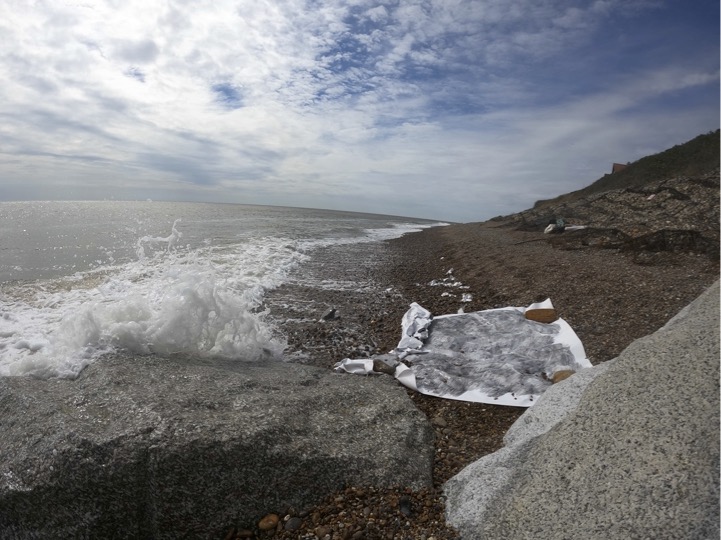
Familiarity and belonging
Caroline Wright is interested in behaviours that signify or provoke familiarity and belonging including working with meaningful objects. She creates her large-scale, close, pencil drawings from a direct relationship with a location. She captures place at its material level. Caroline Wright’s smaller monoprints and paintings evoke the senses of objects and their geography. Her performances embody site and are crafted out of local community knowledge. By grasping, describing and retaining a sense of place in the work, she explores possibilities for identity to be preserved by gaining control through physical responses.
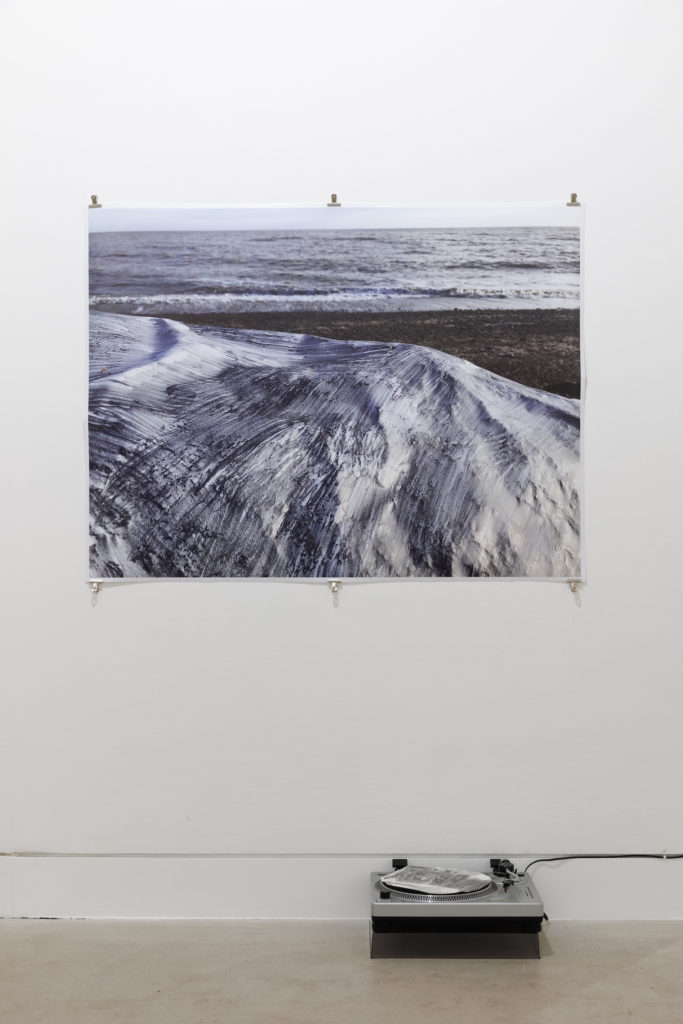
Studying and teaching
Caroline Wright studied at Norwich School of Art and Design (now NUA) and is a Doctoral candidate at the Royal College of Art. She has lectured widely, for example,York University, Liverpool John Moores, University for the Creative Arts, Greenwich University and The London Conference in Critical Thought.
https://www.carolinewright.com
